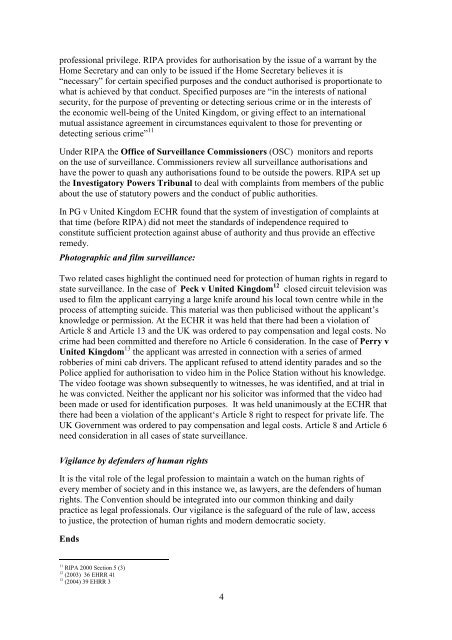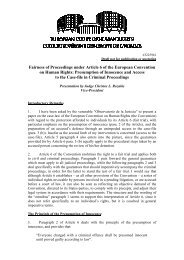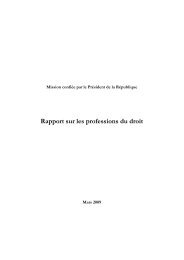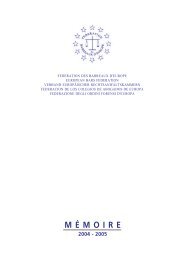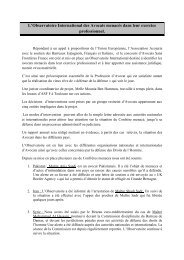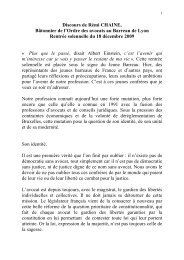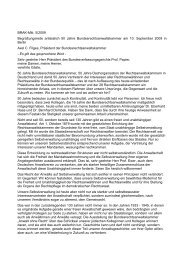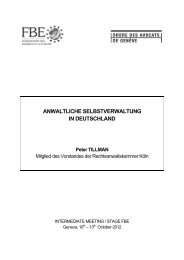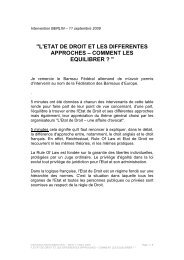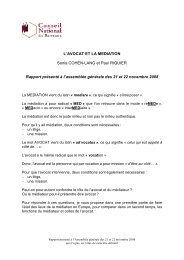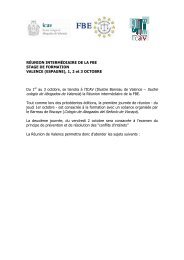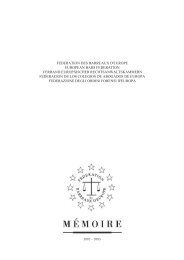Sara Chandler
Sara Chandler
Sara Chandler
Create successful ePaper yourself
Turn your PDF publications into a flip-book with our unique Google optimized e-Paper software.
professional privilege. RIPA provides for authorisation by the issue of a warrant by the<br />
Home Secretary and can only to be issued if the Home Secretary believes it is<br />
“necessary” for certain specified purposes and the conduct authorised is proportionate to<br />
what is achieved by that conduct. Specified purposes are “in the interests of national<br />
security, for the purpose of preventing or detecting serious crime or in the interests of<br />
the economic well-being of the United Kingdom, or giving effect to an international<br />
mutual assistance agreement in circumstances equivalent to those for preventing or<br />
detecting serious crime” 11<br />
Under RIPA the Office of Surveillance Commissioners (OSC) monitors and reports<br />
on the use of surveillance. Commissioners review all surveillance authorisations and<br />
have the power to quash any authorisations found to be outside the powers. RIPA set up<br />
the Investigatory Powers Tribunal to deal with complaints from members of the public<br />
about the use of statutory powers and the conduct of public authorities.<br />
In PG v United Kingdom ECHR found that the system of investigation of complaints at<br />
that time (before RIPA) did not meet the standards of independence required to<br />
constitute sufficient protection against abuse of authority and thus provide an effective<br />
remedy.<br />
Photographic and film surveillance:<br />
Two related cases highlight the continued need for protection of human rights in regard to<br />
state surveillance. In the case of Peck v United Kingdom 12 closed circuit television was<br />
used to film the applicant carrying a large knife around his local town centre while in the<br />
process of attempting suicide. This material was then publicised without the applicant’s<br />
knowledge or permission. At the ECHR it was held that there had been a violation of<br />
Article 8 and Article 13 and the UK was ordered to pay compensation and legal costs. No<br />
crime had been committed and therefore no Article 6 consideration. In the case of Perry v<br />
United Kingdom 13 the applicant was arrested in connection with a series of armed<br />
robberies of mini cab drivers. The applicant refused to attend identity parades and so the<br />
Police applied for authorisation to video him in the Police Station without his knowledge.<br />
The video footage was shown subsequently to witnesses, he was identified, and at trial in<br />
he was convicted. Neither the applicant nor his solicitor was informed that the video had<br />
been made or used for identification purposes. It was held unanimously at the ECHR that<br />
there had been a violation of the applicant‘s Article 8 right to respect for private life. The<br />
UK Government was ordered to pay compensation and legal costs. Article 8 and Article 6<br />
need consideration in all cases of state surveillance.<br />
Vigilance by defenders of human rights<br />
It is the vital role of the legal profession to maintain a watch on the human rights of<br />
every member of society and in this instance we, as lawyers, are the defenders of human<br />
rights. The Convention should be integrated into our common thinking and daily<br />
practice as legal professionals. Our vigilance is the safeguard of the rule of law, access<br />
to justice, the protection of human rights and modern democratic society.<br />
Ends<br />
11 RIPA 2000 Section 5 (3)<br />
12 (2003) 36 EHRR 41<br />
13 (2004) 39 EHRR 3<br />
4


